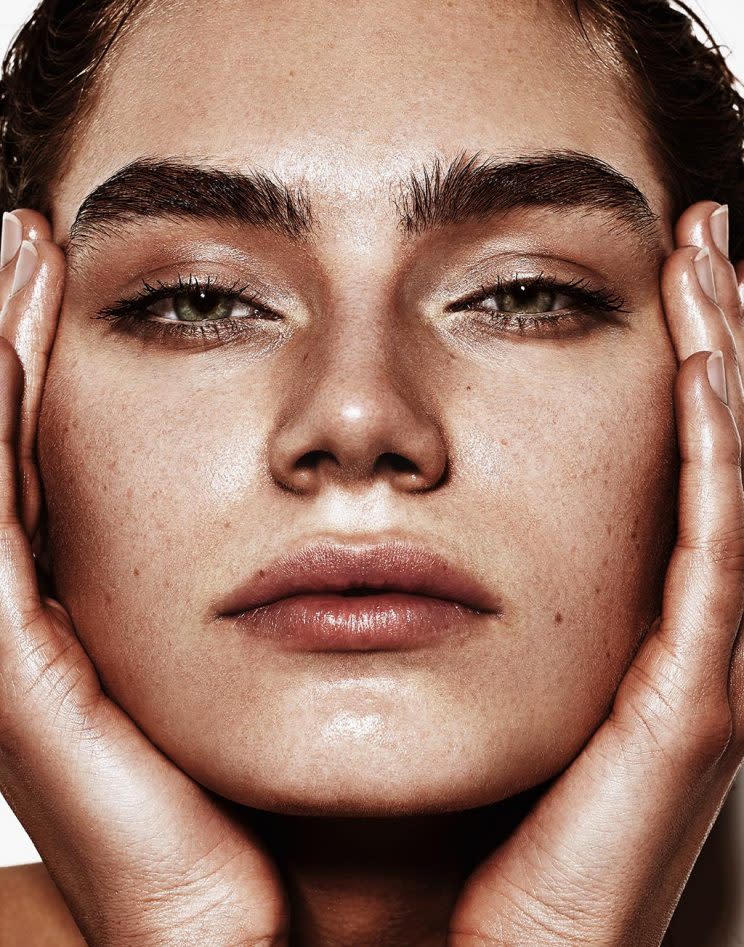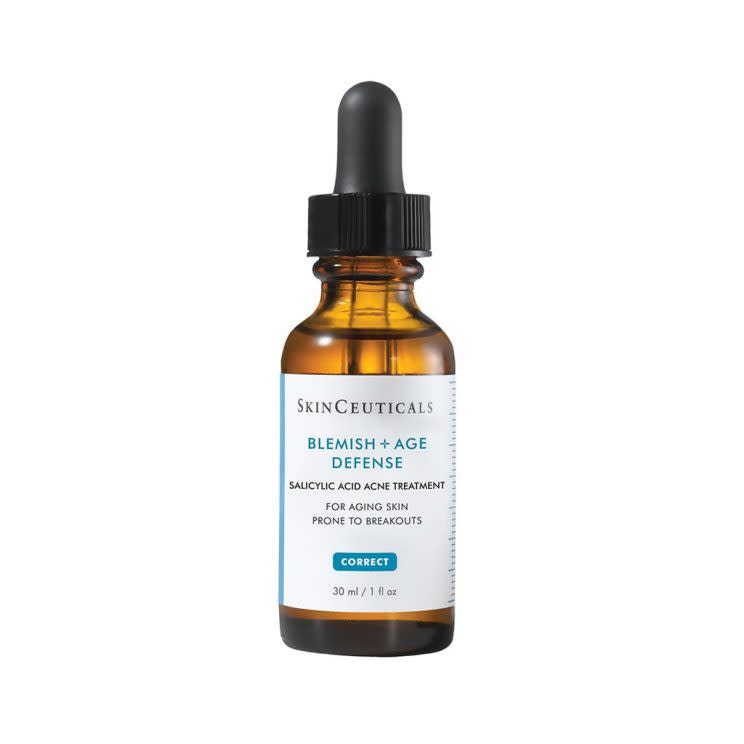Your Ultimate Guide to Finding the Best Serum for Your Skin Type

When it comes to skin care, using the right serum is essential to getting your skin into top shape — but never has a beautifying elixir garnered so much praise and confusion at once. The lightweight liquids are typically packed with concentrated doses of potent actives to deliver antiaging to acne-banishing benefits, all with just a few drops a day. While face masks and spot treatments make great additions to any skin care regimen, a cocktail of effective ingredients tailored to meet your skin’s needs is easily the most powerful part of your nighttime routine.
Board-certified dermatologist Jessie Cheung says that serums “are designed to absorb quickly and deliver their payloads deep into the skin, without the excess baggage that may decrease potency.” The only caveat when it comes to serums is choosing the right one. With prices in the $100-plus range, you want to be sure that the contents of the 1-ounce bottle you settle on contain exactly what your skin needs. And because not all serums are created equally, we consulted a few dermatologists to school us on what ingredients to look for in your serum soulmate.
Dry skin

Beverly Hills-based dermatologist Harold Lancer points out that back in the day, serums were designed for dry skin. “Historically, serums have been hydrators — in the 1980s and ’90s, they were purely luxurious hydrating agents.” Serums have since evolved to include the holy grail of hydrators, hyaluronic acid. If you have sensitive skin, Lancer advises you stick with cooling and calming ingredients. “This can come from a variety of extracts like avocado, safflower oil, cucumber, or marshmallow extract,” he says. Lancer also adds that the anti-inflammatory aloe is an excellent skin soother if you suffer from eczema or rosacea.
Try: Glossier Super Bounce ($28)
Hyperpigmentation

All dermatologists can agree that vitamin C is a major key to obtaining a radiant complexion free of dark spots. Hyperpigmentation happens when melanin is overproduced in certain areas due to many reasons, from hormones to sun exposure to healing breakouts. Cheung and Lancer both add that licorice extract is a proven hyperpigmentation fighter that lives in the shadow of vitamin C. “Liquiritin, a substance found in licorice, has been found effective in treatment of melisma,” says Lancer.
Try: Lancer Skincare Fade Serum Intense LES Brightening Complex ($225)
Acne-prone skin

Smooth and glowy are the two words we’d use to describe gorgeous, acne-free skin, but those results can be the hardest to achieve. Using a serum that will slough off dead skin, unclog pores, and keep skin clear of bacteria is a crucial part of reaching that goal. Cheung says, “Look for ingredients that encourage gentle exfoliation and cell turnover like retinol, alpha-hydroxy acids, and salicylic acid.” When skin is resurfaced, blemishes and enlarged pores don’t stand a chance.
Try: Drunk Elephant T.L.C. Framboos Glycolic Night Serum ($90)
Oily skin

Excess sebum production leads to clogged pores, which can cause acne — so if you are prone to oily skin, it’s best to stop it in its tracks. Salicylic acid is attracted to oil, so you can count on it to handle your skin’s needs. Lancer says, “You’ll need a serum with a little bit of a drying component to it, and that’s usually a salicylic acid in addition to a vitamin A.”
Try: Skinceuticals Blemish + Age Defense ($90)
Aging skin

Collagen and elastin production slows as we age and, of course, it’s what we need to maintain firm skin. Lancer says that adding a higher dose of “multistage release hyaluronic acid” will help address this concern, and Cheung adds that ingredients like those found in anti-acne products can help as well. “Look for ingredients that stimulate cell turnover to brighten dull skin and encourage new collagen. These include alpha-hydroxy acids, vitamin A or retinols, antioxidants, peptides, and growth factors,” she says.
Try: Peter Thomas Roth FIRMx Growth Factor Extreme Neuropeptide Serum ($150)
Lackluster skin
If a touch of radiance is your aim, you can reach for similar serums that combat pigmentation. “Don’t overlook the double power of vitamin C, which helps with neo-collagenesis and brightening of the skin,” says Cheung. Similarly, Lancer says that vitamin C is critical and adds that niacinamide can help with sallow or yellowing skin, as can Prunus mume fruit extract.
Try: Sunday Riley Good Genes All-In-One Lactic Acid Treatment ($105)
Normal skin

If you’re one of the few blessed with naturally balanced, beautiful skin, then tread lightly because you don’t need much in the serums department. Cheung says, “It’s all about preventive care! Look for antioxidants and hyaluronic acid to get that glow.” It’s all about “ongoing maintenance to preserve this state,” says Lancer, who also adds that soothing ingredients like cucumber extract and vitamin A are other ones to look out for.
Try: Estée Lauder Advanced Night Repair Synchronized Recovery Complex II ($62)
Let’s keep in touch! Follow Yahoo Beauty on Facebook, Twitter, Instagram, and Pinterest.

